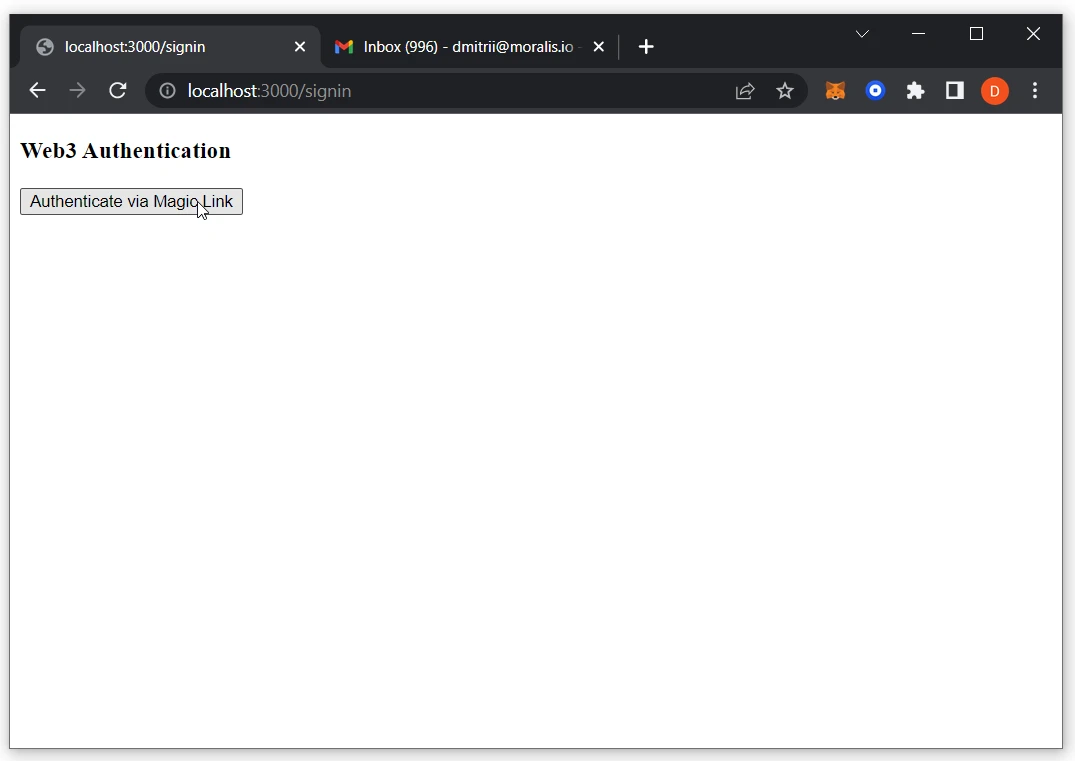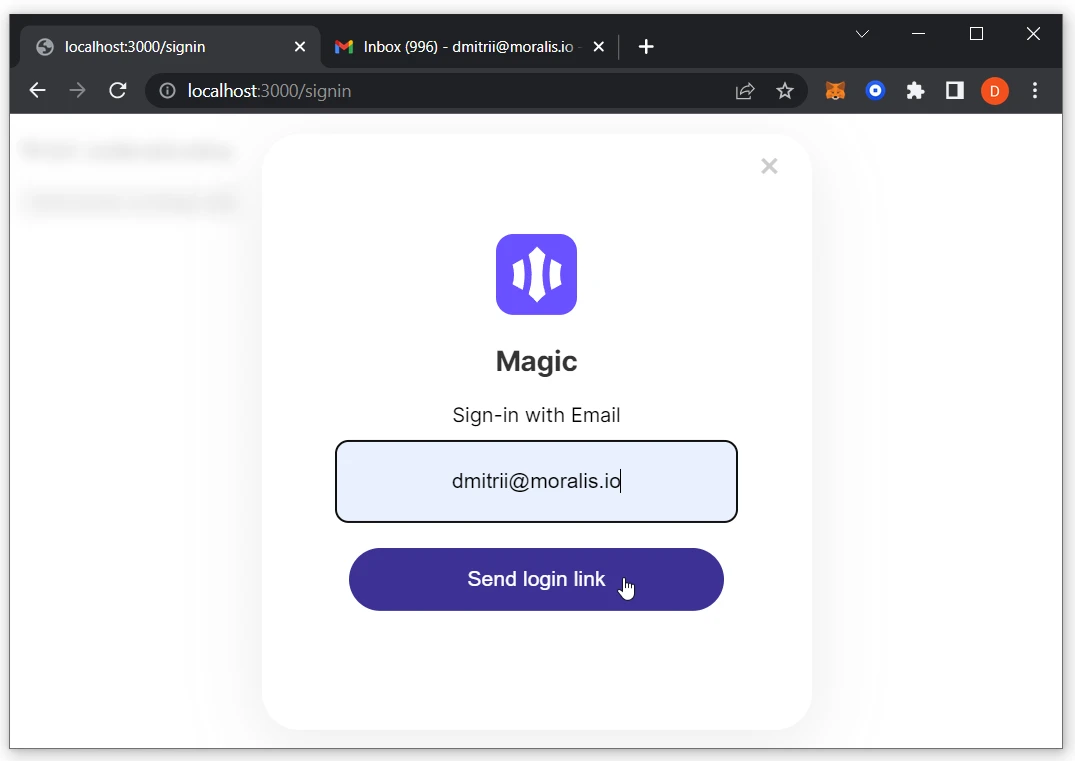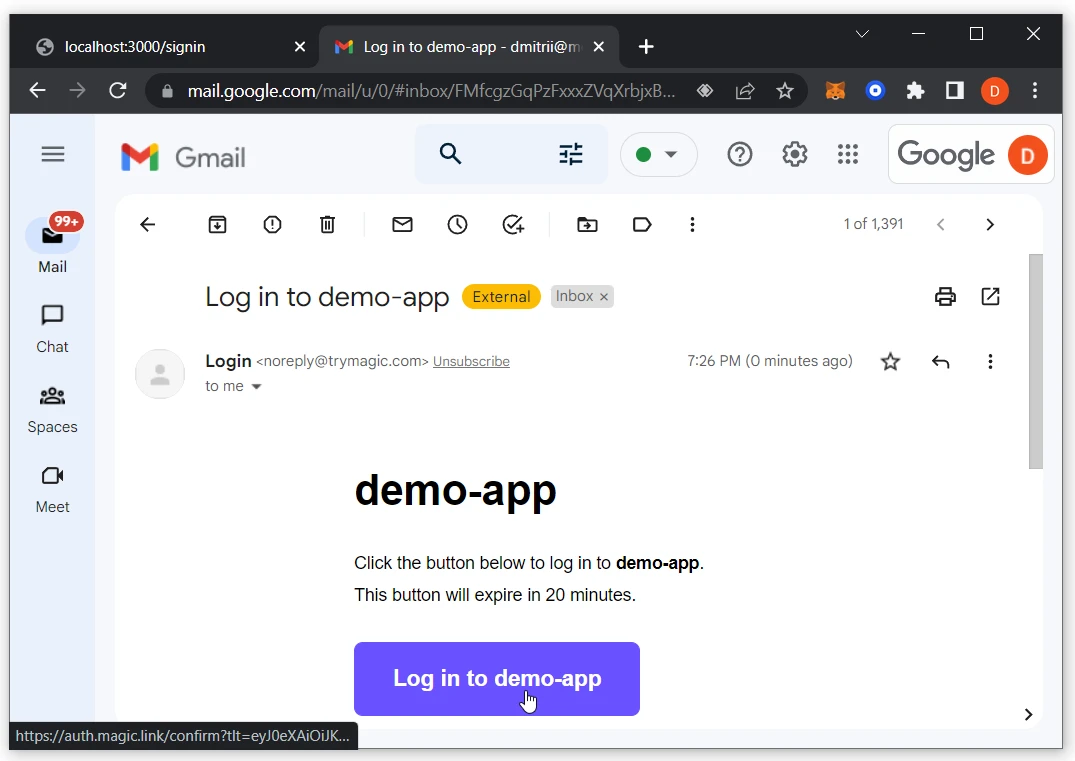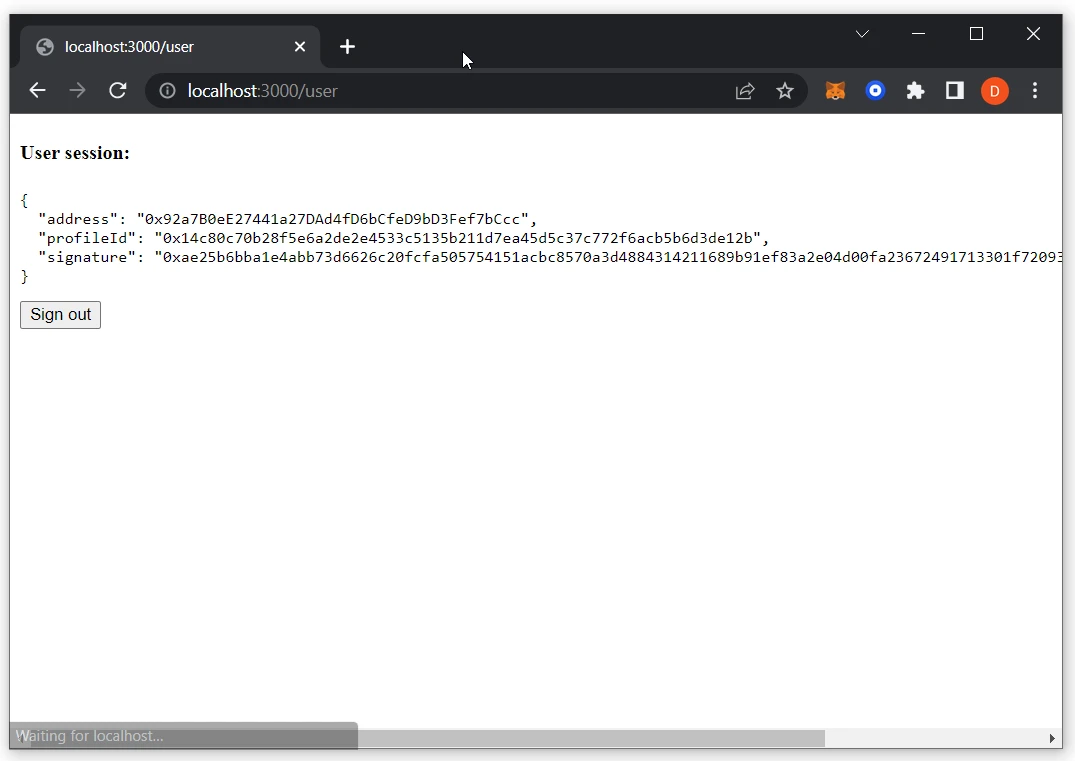How to Authenticate Users with Magic.Link
This tutorial will teach you how to add secure Web3 Moralis authentication to your NextJS application by walking you through the task of creating a full-stack Web3 authentication solution using the popular NextJS framework.
Before Starting
You can start this tutorial if you already have a NextJS dapp with MetaMask sign-in functionality.
Installing the Magic Connector
WAGMI Magic Connector - the easiest way to add Magic.Link authentication for dapps using wagmi:
- npm
- Yarn
- pnpm
npm install @everipedia/wagmi-magic-connector
yarn add @everipedia/wagmi-magic-connector
pnpm add @everipedia/wagmi-magic-connector
Configuring the Magic Connector
- Open the
pages/signin.jsxfile and addMagicConnectoras a connector to theuseConnect()hook:
import { MagicAuthConnector } from "@everipedia/wagmi-magic-connector";
import { signIn } from "next-auth/react";
import { useAccount, useConnect, useSignMessage, useDisconnect } from "wagmi";
import { useRouter } from "next/router";
import { useAuthRequestChallengeEvm } from "@moralisweb3/next";
function SignIn() {
const { connectAsync } = useConnect({
connector: new MagicAuthConnector({
options: {
apiKey: "YOUR_MAGIC_LINK_API_KEY", //required
},
}),
});
const { disconnectAsync } = useDisconnect();
const { isConnected } = useAccount();
const { signMessageAsync } = useSignMessage();
const { requestChallengeAsync } = useAuthRequestChallengeEvm();
const { push } = useRouter();
const handleAuth = async () => {
if (isConnected) {
await disconnectAsync();
}
const { account } = await connectAsync();
const { message } = await requestChallengeAsync({
address: account,
chainId: "0x1",
});
const signature = await signMessageAsync({ message });
// redirect user after success authentication to '/user' page
const { url } = await signIn("moralis-auth", {
message,
signature,
redirect: false,
callbackUrl: "/user",
});
/**
* instead of using signIn(..., redirect: "/user")
* we get the url from callback and push it to the router to avoid page refreshing
*/
push(url);
};
return (
<div>
<h3>Web3 Authentication</h3>
<button onClick={() => handleAuth()}>Authenticate via Magic.Link</button>
</div>
);
}
export default SignIn;
Testing the WalletConnect Connector
Visit http://localhost:3000/signin to test authentication.
- Click on
Authenticate via Magic.Link:

- Enter your email:

- Verify the login from your email:

- After successful authentication, you will be redirected to the
/userpage:

- Visit
http://localhost:3000/userto test the user session's functionality:
- When a user is authenticated, we show the user's info on the page.
- When a user is not authenticated, we redirect to the
/signinpage. - When a user is authenticated, we show the user's info on the page, even refreshing after the page. (Explanation: After Web3 wallet authentication, the
next-authlibrary creates a session cookie with an encrypted JWT [JWE] stored inside. It contains session info [such as an address and signed message] in the user's browser.)